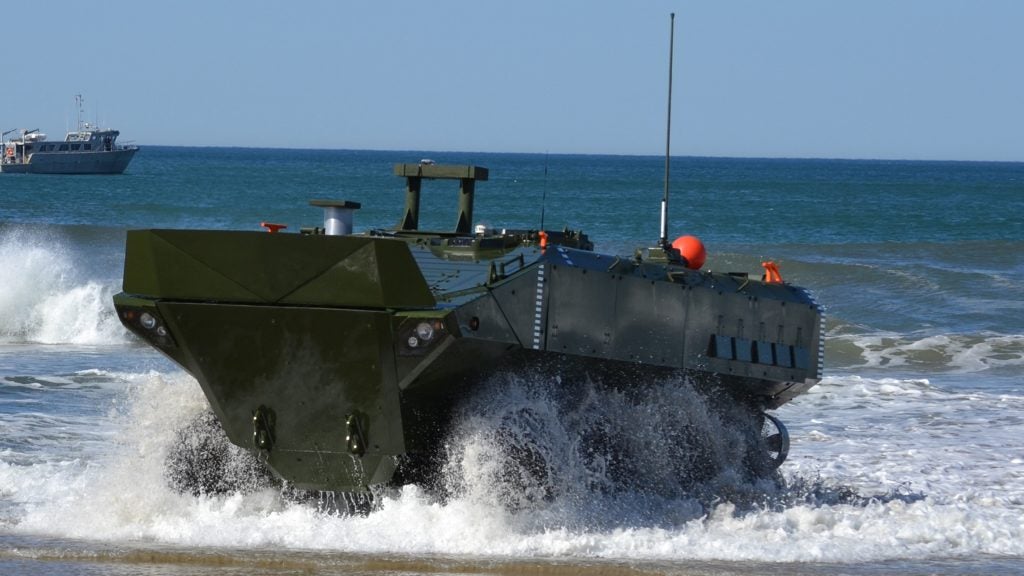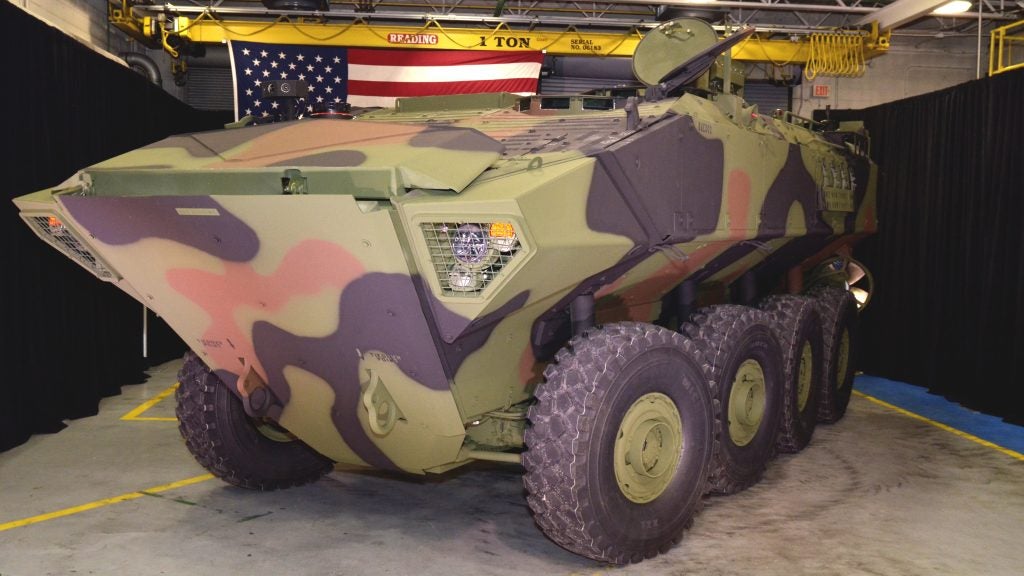USMC Orders More Amphibious Combat Vehicles
The Marine Corps has ordered an additional 26 Amphibious Combat Vehicle-Personnel (ACV-P) platforms from BAE Systems and its partner Iveco Defence Vehicles. The additional vehicles, procured under a Low-Rate Initial Production contract, sees a total of 116 of a potential 1,122, ACV-Ps now ordered by the Corps.
BAE gushingly added in their press release; “The ACV provides the most survivable and mobile amphibious vehicle to the US Marines Corps for supporting the warfighters’ ability to successfully execute their unique expeditionary missions.” Overt Defense has chronicled the ACV previously- both the initial contract award and additional orders made last year.

The ACV is an 8×8 wheeled platform that can propel itself at speeds of up to six knots in water and 100 kilometers an hour on land, fast enough to keep pace with the Marines’ M1A2 main battle tanks. It can carry a full Marine rifle squad of 13, with the blast and ballistic protection levels of a Category 1 MRAP (Mine Resistant, Ambush Protected). If Full-Rate Production is met, the Personnel variant will be partnered with a number of additional versions including ACV-C (Command and Control), the ACV-30 mounting a 30mm cannon, and the ACV-R (Recovery).
The move toward replacing the legacy AAV (Amphibious Assault Vehicle) platforms has been a long and costly exercise. Initially the Corps were looking at the Expeditionary Fighting Vehicle (EFV), a tracked platform capable of carrying up to 17 Marines and mounting a turreted 30mm cannon, however, the EFV program was canned in January 2011, after a staggering $3 billion had been spent on its development. Instead a request for information for the “more affordable and sustainable” ACV was issued the following month.

(Kaitlin Kelly/Department of Defense)
The AAV soldiered on with a Service Life Extension Program and plans were developed for both the ACV, in two distinct iterations (1.1- the current ACV- and the future 1.2), and the Marine Personnel Carrier (MPC), a platform designed to carry Marines on land. The MPC program was also cancelled in 2013 and the ACV 1.1 and 1.2 requirements combined. In 2018, procurement of the ACV by BAE Systems was eventually announced, leading to the current ACV-P.
An excellent history of the AAV replacement program, and a testament to how not to run large scale vehicle procurements, was issued by the Congressional Research Service and is publicly available here.

